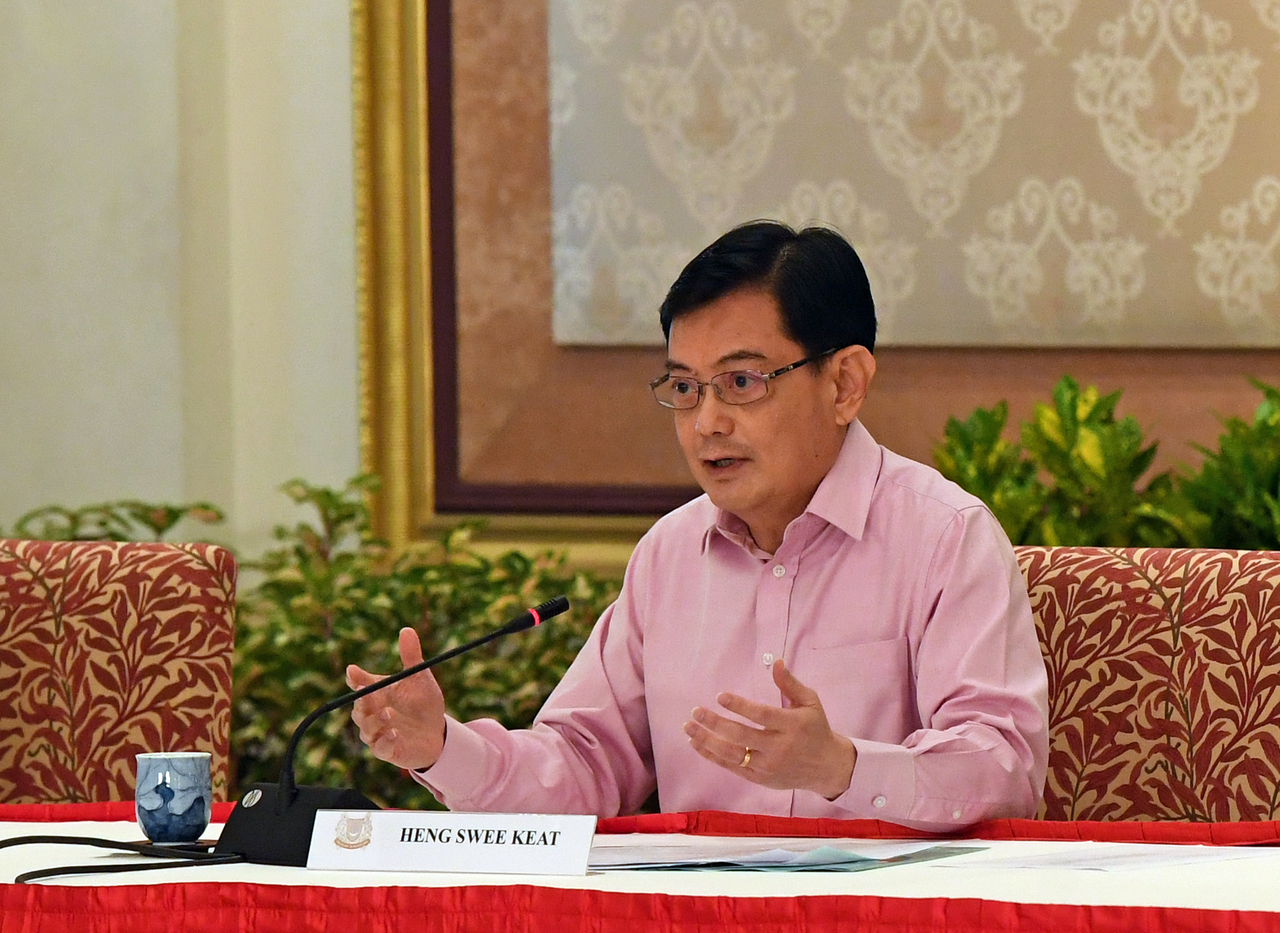Observers express surprise at Heng Swee Keat stepping aside as 4G leader but say policies on track
Sign up now: Get ST's newsletters delivered to your inbox

Deputy Prime Minister Heng Swee Keat announced his decision to step aside as Singapore's potential prime minister on April 8, 2021.
ST PHOTO: DESMOND FOO
Follow topic:
SINGAPORE - While Deputy Prime Minister Heng Swee Keat's decision to step aside as Singapore's potential prime minister came as a surprise, industry watchers said it should not rattle investor and business confidence or affect the timeline for implementing key policies such as the goods and services tax (GST) hike.
Speaking to The Straits Times on Friday (April 9), Singapore Business Federation chief executive Lam Yi Young said that like the rest of Singapore, the business community here was surprised by the announcement.
"But they continue to have trust in the Government and the stability of its policies. Confidence in Singapore as a business destination remains high," said Mr Lam.
Mr Heng will stay on as DPM and Coordinating Minister for Economic Policies but relinquish the finance portfolio at the next Cabinet reshuffle. He had cited the long-term and profound challenges of the Covid-19 pandemic, his age and the demands of the top job, as reasons for his decision.
At a press conference on Thursday, the party's fourth-generation (4G) leaders said they would need more time to select another leader from among them.
Business confidence will not be hit
Mr Kurt Wee, president of the Association of Small and Medium Enterprises, said the 4G leaders had "thoroughly proven themselves" in ushering the country through the Covid-19 crisis.
"They have gained the trust of Singaporeans, and the team of political leaders and Cabinet members. I'm sure they will select a leader who will be able to make good calls and lead Singapore over the next decades."
Echoing his sentiments, Singapore International Chamber of Commerce chief executive Victor Mills said the announcement was surprising but would not negatively affect business and investment confidence in Singapore.
"The same political team is in place and we do not expect any policy changes," he explained.
The assurance of policy continuity was a factor highlighted by many other observers.
An example is the GST rate hike from 7 per cent to 9 per cent, which is slated to take place between 2022 and 2025, and which Mr Heng had said would take place "sooner rather than later".
Deloitte Singapore indirect tax leader Richard Mackender said the announcement should not change these plans "as the decision to increase taxes is not a personal mission of the Finance Minister, but an agreement by the whole of Government that tax revenue needs to be secured for the future of the country".
CIMB Private Banking economist Song Seng Wun said Mr Heng's stepping down "came earlier than (I) expected", but noted that policies such as the GST hike are about fiscal sustainability and have little to do with who is the finance minister of the day.
"It is about when the economy is ready and the time is right for the necessary policy tweaks," he said, adding that while the announcement makes for good coffeeshop talk, it is "life as per normal" for the market and businesses.
An example he cited is the recently announced bonds to fund infrastructure projects. The new debt will be called Singapore Government Securities (Infrastructure) and the existing bonds renamed to SGS (Market Development).
"Singapore remains AAA-rated, and our sovereign credit rating unaffected," he said. "The bonds will see a lot of demand."
Most likely successors for PM Lee
DBS senior economist Irvin Seah stressed that there should be clarity on the next prime minister by 2023 - the mid-point of the current term of Government, and well before the next general election due in November 2025.
The longer the uncertainty persists, the more concerns will surface, he said. "While I don't foresee a marked change in policies which have already been announced, I do think that we are at a stage where execution is very important."
Nailing down the post of finance minister is important, he added, as the Government has just introduced a slew of post-pandemic transformational policies, from its sustainability agenda to infrastructure financing.
"At the core of these measures is fiscal policy, and it is important that whoever is going to assume the role of finance minister must be familiar with these policies and able to carry through all these measures."
A Fitch Solutions report released on Friday said it expected the ruling People's Action Party to maintain the high standards of governance that Singapore has become known for, despite disruption to its leadership renewal plans.
"Prime Minister Lee Hsien Loong and senior members of his cohort are likely to remain in advisory positions in Cabinet and help guide the next generation of leaders, making up for the likely significant lack of experience the fourth PM will have compared with their predecessors," it said.
It identified Minister for Trade and Industry Chan Chun Sing and Minister for Education Lawrence Wong as the most likely candidates to succeed PM Lee, who has said that he will stay on until the next leader is ready to take over.

<p>Minister for Trade and Industry Chan Chun Sing (left) looks on, as Education Minister Lawrence Wong (right) speaks to the media at the press conference at the Istana on 8 Apr 2021.</p>
PHOTO: ST
The Economist Intelligence Unit Asia country analyst Yu Liuqing also flagged Mr Chan and Mr Wong as the two most probable candidates for the country's top post.
Speculation aside, continuity and clarity are hallmarks of Singapore-style governance which are unlikely to go away any time soon, said CIMB's Mr Song.
"As long as there is continuity and clarity in policy execution, life goes on. We want Singapore Inc. to be like this, where changes at the top can happen without creating anxiety and uncertainty among businesses."

